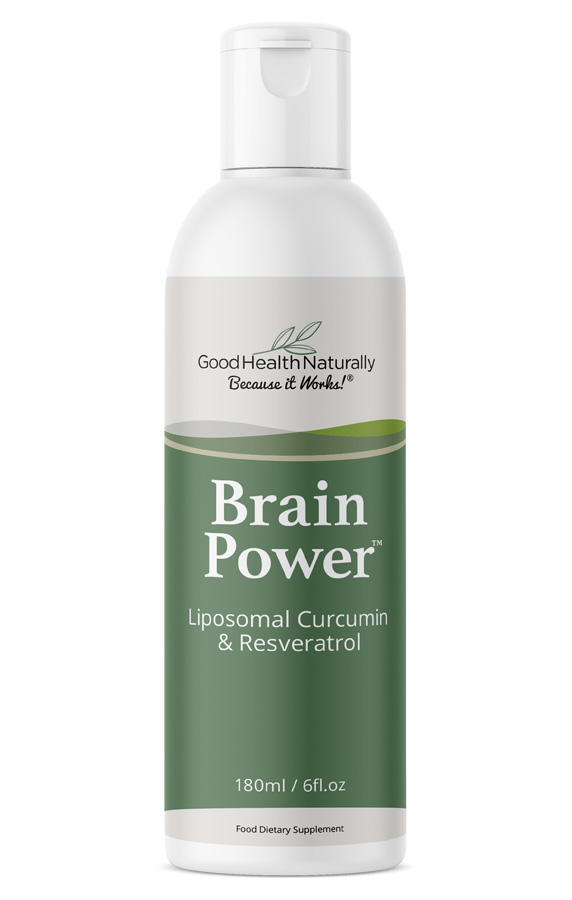Welcome to this week’s edition of Naturally Healthy News!
June is Alzheimer’s and Brain Awareness Month, a time dedicated to raising awareness about brain health and the impact of neurodegenerative diseases. To tie in with this, we found some interesting research we’d like to share this week.
What caught our attention was a compelling study highlighting curcumin’s potential to detoxify fluoride and protect against neurodegeneration. We’ll delve into this research and examine additional studies demonstrating the neuroprotective benefits of this remarkable spice. But first, let’s explore the topic of fluoride in more detail and understand why it remains a controversial substance.
Fluoride: Ubiquitous but Controversial
Fluoride is a naturally occurring mineral found in water, soil, rocks, and various foods. It’s widely known for its role in preventing tooth decay, which is why it’s added to many dental products like toothpaste and mouthwash. Moreover, many communities add fluoride to their drinking water, a practice known as water fluoridation, to promote dental health on a larger scale.
However, the presence of fluoride in multiple sources means we can easily consume it in excessive amounts, leading to potential health risks. High fluoride exposure can occur through drinking water, certain foods, and even industrial emissions. The question is, at what point does fluoride, beneficial in small doses, become a threat to our health?
Neurotoxicity Concerns
One of the primary health concerns associated with excessive fluoride intake is neurotoxicity. Studies have indicated that high fluoride levels can impair cognitive functions, particularly in children. Research published in The Lancet Neurology classifies fluoride as a developmental neurotoxicant, implicating it in reduced IQ scores and other cognitive deficits in children exposed to high levels of fluoride during early development.
Furthermore, fluoride has been shown to interfere with thyroid function, which is vital for brain health and overall metabolic regulation. Disruption in thyroid function can lead to various health issues, including those affecting cognitive abilities and brain health.
Curcumin: The Natural Protector
Curcumin, the active compound in turmeric, has gained attention for its numerous health benefits, including its potent anti-inflammatory and antioxidant properties. Recent research has explored curcumin’s potential in detoxifying fluoride and protecting against its neurotoxic effects.
A notable study published in Pharmacognosy Magazine in 2014 found that curcumin significantly reduced fluoride-induced toxicity in experimental animals. The researchers observed improvements in neurobehavioral and biochemical parameters with curcumin supplementation.
A 2019 International Journal of Molecular Sciences study also demonstrated curcumin’s protective effects against fluoride-induced neurotoxicity. The research highlighted curcumin’s ability to reduce oxidative stress and inflammation in brain tissues exposed to fluoride, suggesting its role in combating fluoride toxicity and supporting brain health.
Mechanisms of Action
Curcumin’s protective properties stem from its ability to neutralise free radicals and reduce oxidative stress. Oxidative stress is a significant factor in neurotoxicity and neurodegeneration, and by mitigating this, curcumin helps protect brain cells from damage. Furthermore, curcumin’s anti-inflammatory effects help to reduce inflammation in the brain, another critical factor in neurodegenerative diseases like Alzheimer’s.
Curcumin also possesses chelating properties, meaning it can bind to heavy metals and toxins, facilitating their removal from the body. This chelation mechanism is particularly relevant for fluoride detoxification, where curcumin can help bind to fluoride ions and promote their excretion via urine or bile
Link to Neurodegeneration
Curcumin’s benefits extend beyond fluoride detoxification. Research has linked curcumin to protective effects against neurodegenerative diseases such as Alzheimer’s. A study published in Neurochemical Research showed that curcumin could inhibit the formation of beta-amyloid plaques, characteristic of Alzheimer’s disease, and reduce neuroinflammation. This makes curcumin a promising natural compound for overall brain health and protection against cognitive decline.
Practical Tips for Reducing Fluoride Exposure and Enhancing Brain Health
To maintain optimal brain health, consider the following strategies:
Monitor Fluoride Intake: Be aware of fluoride levels in your drinking water, particularly if you live in an area with fluoridated water supplies. You can use water filters designed to reduce fluoride levels.
Choose Fluoride-Free Dental Products: Opt for fluoride-free toothpaste and mouthwash, especially for children who might be more vulnerable to fluoride’s effects.
Maintain a Balanced Diet: A diet rich in calcium, magnesium, and vitamin C can help support overall health and potentially reduce fluoride absorption.
Incorporate Curcumin: Adding curcumin to your diet through turmeric or supplements can protect against fluoride toxicity and support brain health.
Conclusion
While beneficial in controlled amounts for dental health, fluoride poses significant risks when consumed excessively, particularly concerning neurotoxicity. As we observe Alzheimer’s and Brain Awareness Month, it’s an opportune time to reflect on natural ways to protect our brains. Research into curcumin offers promising insights into natural detoxification and protection against cognitive decline.
We can take proactive steps towards safeguarding our brain health and overall well-being by staying informed, monitoring fluoride exposure, and incorporating protective strategies like curcumin supplementation.
Recommended products:
|
BrainPower™ |
CurcuminX4000® Original |
Silver Biotics® Natural Whitening Coral Toothpaste |
 |
 |
 |




